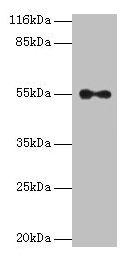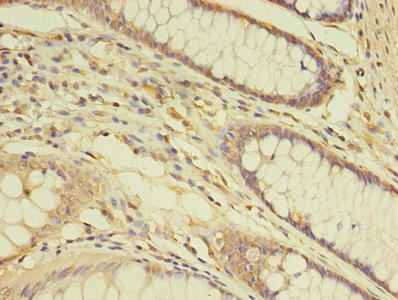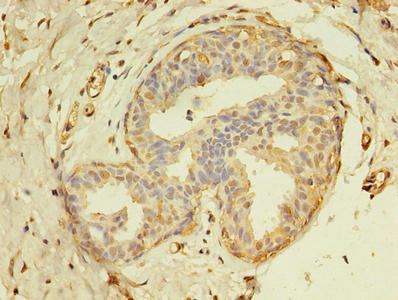Full Product Name
Rabbit anti-Homo sapiens (Human) THRA Polyclonal antibody
Alternative Names
c-erbA-1 antibody; C-erbA-alpha antibody; EAR-7 antibody; ERBA 1 antibody; ERBA antibody; ERBA related 7 antibody; Nuclear receptor subfamily 1 group A member 1 antibody; THA_HUMAN antibody; THRA antibody; Thra1 antibody; Thra2 antibody; Thyroid hormone receptor alpha 1 antibody; Thyroid hormone receptor alpha 2 antibody; Thyroid hormone receptor alpha antibody; TR alpha 1 antibody; TR alpha 2 antibody; Tra1 antibody; Triiodothyronine receptor antibody; V-erbA-related protein 7 antibody
Immunogen
Recombinant Human Thyroid hormone receptor alpha protein (1-490AA)
Immunogen Species
Homo sapiens (Human)
Conjugate
Non-conjugated
The THRA Antibody (Product code: CSB-PA023510LA01HU) is Non-conjugated. For THRA Antibody with conjugates, please check the following table.
Available Conjugates
| Conjugate |
Product Code |
Product Name |
Application |
| HRP |
CSB-PA023510LB01HU |
THRA Antibody, HRP conjugated |
ELISA |
| FITC |
CSB-PA023510LC01HU |
THRA Antibody, FITC conjugated |
|
| Biotin |
CSB-PA023510LD01HU |
THRA Antibody, Biotin conjugated |
ELISA |
Purification Method
>95%, Protein G purified
Concentration
It differs from different batches. Please contact us to confirm it.
Buffer
Preservative: 0.03% Proclin 300
Constituents: 50% Glycerol, 0.01M PBS, PH 7.4
Tested Applications
ELISA, WB, IHC
Recommended Dilution
| Application |
Recommended Dilution |
| WB |
1:1000-1:5000 |
| IHC |
1:20-1:200 |
Storage
Upon receipt, store at -20°C or -80°C. Avoid repeated freeze.
Lead Time
Basically, we can dispatch the products out in 1-3 working days after receiving your orders. Delivery time maybe differs from different purchasing way or location, please kindly consult your local distributors for specific delivery time.
Usage
For Research Use Only. Not for use in diagnostic or therapeutic procedures.









